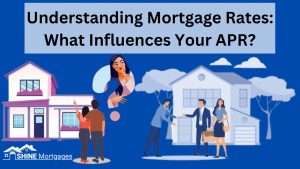Understanding Mortgage Insurance: A Comprehensive Guide
Unlock the secrets of mortgage insurance! Learn if it’s right for you and how it impacts your home buying journey. Avoid costly mistakes and make informed decisions. Get your free guide now!

Buying a home is a significant financial undertaking. Securing a mortgage is often a crucial step in this process. But what about mortgage insurance? This often-overlooked aspect of homeownership can significantly impact your financial picture, so understanding its purpose and necessity is paramount. This comprehensive guide will delve into the intricacies of mortgage insurance, helping you determine if it’s a necessary expense for your situation.
Understanding Mortgage Insurance: Protecting the Lender
Mortgage insurance, at its core, is designed to protect the lender, not the borrower. When you take out a mortgage, the lender is essentially loaning you a substantial sum of money. If you default on your loan—failing to make payments—the lender faces significant financial risk. Mortgage insurance acts as a safety net, mitigating that risk for the lender by insuring them against potential losses.
Types of Mortgage Insurance
There are several types of mortgage insurance available, each with its own set of rules and requirements. The most common types include Private Mortgage Insurance (PMI) and Mortgage Insurance Premiums (MIP).
- Private Mortgage Insurance (PMI): This is typically required for conventional loans where the down payment is less than 20% of the home’s purchase price. PMI protects the lender in case of default. The borrower pays a monthly premium until they reach 20% equity in their home.
- Mortgage Insurance Premiums (MIP): MIP is required for Federal Housing Administration (FHA) loans, which often have lower down payment requirements than conventional loans. Like PMI, MIP protects the lender and is paid by the borrower as a monthly premium. MIP can sometimes remain in place even after the borrower reaches 20% equity.
- VA-Guaranteed Loans: Veterans Affairs (VA) loans don’t require mortgage insurance in the traditional sense. However, a funding fee is charged, which serves a similar purpose in protecting the lender. This fee is usually financed into the loan.
Factors Determining Your Need for Mortgage Insurance
Whether or not you need mortgage insurance primarily depends on the type of loan you obtain and the size of your down payment. Several other factors also play a role.
Down Payment Percentage
The most significant factor is the size of your down payment. For conventional loans, a down payment of less than 20% typically necessitates PMI. This is because the lender considers a larger down payment to be less risky. With a larger down payment, the borrower has more “skin in the game,” reducing the likelihood of default.
Loan Type
The type of loan you choose directly influences whether mortgage insurance is required. FHA loans, for instance, always require MIP, regardless of the down payment amount. VA loans, while not requiring traditional mortgage insurance, still have funding fees. Conventional loans typically require PMI for down payments below 20%, but exceptions may exist.
Credit Score
Your credit score plays a vital role in determining your eligibility for a mortgage and the terms you’ll receive. A higher credit score often translates to better loan options, potentially influencing the need for mortgage insurance. Lenders may view borrowers with excellent credit scores as lower risk, potentially waiving PMI requirements even with a down payment below 20%.
Debt-to-Income Ratio
Your debt-to-income ratio (DTI) measures your monthly debt payments relative to your gross monthly income. A high DTI suggests a greater financial burden, which could increase the lender’s perceived risk. A higher DTI might make it more likely that you’ll need mortgage insurance, even with a larger down payment.
The Cost of Mortgage Insurance
Mortgage insurance adds to your monthly mortgage payment, increasing your overall housing costs. The cost varies depending on several factors, including the type of insurance, your loan amount, credit score, and the loan-to-value ratio (LTV). The LTV is the ratio of the loan amount to the home’s value.
Calculating the Cost
The cost of PMI is usually calculated as a percentage of the loan amount. MIP premiums are determined by the loan amount, the loan term, and other factors. It’s crucial to factor the cost of mortgage insurance into your overall budgeting process when planning for homeownership. It’s a significant expense that can stretch your monthly budget.
Removing Mortgage Insurance
The good news is that you can potentially remove mortgage insurance under certain circumstances. For PMI, this usually happens when your home equity reaches 20%. This means you’ve paid down enough of your loan that the lender’s risk is significantly reduced. You will need to contact your lender to initiate the removal process. For MIP, the rules are more complex and vary depending on the loan specifics and the type of FHA loan you have. Some FHA loans may require you to maintain MIP for the entire loan term.
How to Remove PMI
To remove PMI, you need to demonstrate that you’ve reached the 20% equity threshold. This typically involves providing documentation such as a home appraisal showing the increased value of your property. Contacting your lender is crucial to understanding the specific requirements and procedures for removing PMI from your mortgage.
Weighing the Pros and Cons
Before making any decisions, carefully weigh the pros and cons of mortgage insurance. It’s a significant financial commitment, and understanding its implications is essential.
- Pros: Allows for lower down payments, making homeownership more accessible to a wider range of buyers. Protects the lender, potentially leading to more favorable loan terms for the borrower.
- Cons: Adds to your monthly housing expenses, potentially impacting your budget. Can be a significant additional cost over the life of the loan. Removal might not always be straightforward or guaranteed.
Seeking Professional Advice
Navigating the complexities of mortgage insurance can be challenging. Seeking guidance from a qualified financial advisor or mortgage broker is highly recommended. They can provide personalized advice based on your specific financial situation and help you make informed decisions about your mortgage. Don’t hesitate to ask questions and seek clarification on any aspect you find unclear. Understanding the intricacies of mortgage insurance is key to responsible homeownership.







